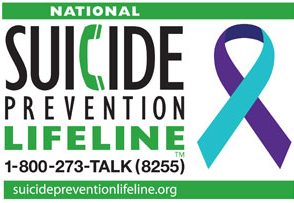IBD | Information

If your life has ever been touched by suicide you may know about National Suicide Prevention Week. If you have had a loved one complete or attempt suicide you probably remember the fear, sadness, anger and shock that can hit you like a ton of bricks when you find out what happened. Maybe you have contemplated suicide, attempted and thankfully “failed” and now live to read this blog. You may say to yourself, “Thank goodness I am still here living a life that got better!”. There have been many campaigns to bring awareness to suicide and this is a good thing. Conversations about suicide need to be had. If we talk openly about it, it is easier for those with those burdensome thoughts to know how and where to get help. Typically, if you are contemplating suicide you are feeling alone and hopeless. However, with advocacy and support around this topic, more and more people can recognize that there are options.
Here are a couple excellent resources that promote awareness and offer several options for help, information and how you can become involved:
The American Foundation for Suicide Prevention offers advocacy and awareness walks and provides several resources. https://afsp.org/
The project semicolon is dedicated to inspiring hope and love for those who struggle with mental illness, suicide, addiction and self-injury. The semicolon represents that a person is #NotDone and still has life and a story to tell. It has become a popular tattoo among survivors and supporters alike. https://www.projectsemicolon.org/
The Champaign to Change Direction encourages all people to know the 5 signs that may mean someone is in emotional pain and may need help and support (personality change, poor self-care, agitated mood, withdrawal and hopelessness). https://www.changedirection.org/
If you have or have had suicidal thoughts please know that support is only one phone call or conversation away.
When it comes to supporting someone who acknowledges that they are struggling and/or having suicidal thoughts, you don’t have to have magic words or a psychology degree to be helpful. The first step is to just say, “I’m here for you!”. There are people who care and during this week of advocacy, take time to appreciate that we never know what someone may be struggling with. Kindness can save lives.
Megan E. Riehl, PsyD
GI Psychologist and Clinical Instructor at the University of Michigan
If you need to reach out to anyone, please don’t hesitate to use these resources:

National Suicide Prevention Lifeline – 1-800-273-TALK (1-800-273-8255)

Crisis Text Line – Text “TWLOHA” to 741-741
[Both resources are available 24×7]
